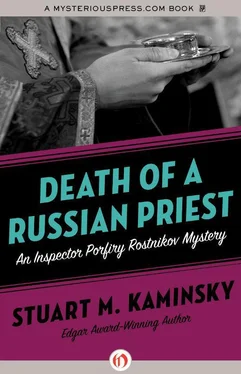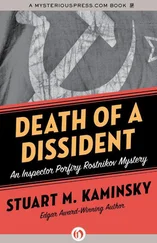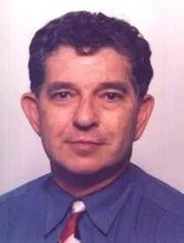Stuart Kaminsky - Death Of A Russian Priest
Здесь есть возможность читать онлайн «Stuart Kaminsky - Death Of A Russian Priest» весь текст электронной книги совершенно бесплатно (целиком полную версию без сокращений). В некоторых случаях можно слушать аудио, скачать через торрент в формате fb2 и присутствует краткое содержание. Год выпуска: 2012, Жанр: Полицейский детектив, на английском языке. Описание произведения, (предисловие) а так же отзывы посетителей доступны на портале библиотеки ЛибКат.
- Название:Death Of A Russian Priest
- Автор:
- Жанр:
- Год:2012
- ISBN:нет данных
- Рейтинг книги:3 / 5. Голосов: 1
-
Избранное:Добавить в избранное
- Отзывы:
-
Ваша оценка:
- 60
- 1
- 2
- 3
- 4
- 5
Death Of A Russian Priest: краткое содержание, описание и аннотация
Предлагаем к чтению аннотацию, описание, краткое содержание или предисловие (зависит от того, что написал сам автор книги «Death Of A Russian Priest»). Если вы не нашли необходимую информацию о книге — напишите в комментариях, мы постараемся отыскать её.
Death Of A Russian Priest — читать онлайн бесплатно полную книгу (весь текст) целиком
Ниже представлен текст книги, разбитый по страницам. Система сохранения места последней прочитанной страницы, позволяет с удобством читать онлайн бесплатно книгу «Death Of A Russian Priest», без необходимости каждый раз заново искать на чём Вы остановились. Поставьте закладку, и сможете в любой момент перейти на страницу, на которой закончили чтение.
Интервал:
Закладка:
Elena looked at him and smiled. “Yes.”
“And how do you know?”
“The dresser,” she said. “He threw down the books and dumped the desk drawer but didn’t touch the dresser. He found what he was looking for before he got to the dresser.”
“Or someone wants us to think they were looking for something.”
“Back to the Nikolai?” she asked.
“Tonight,” he said. “Where do you think we should go now?”
“If we can get authorization, to the girl’s father. With the photograph of Zalinsky and his daughter,”
“If we seek authorization to approach a foreign diplomat, we may never get it. I suggest we naively assume the right to approach him in an effort to keep him informed of the progress of our investigation. The possibility exists that someone else may be looking for her, someone who has committed a murder.”
“And in fact?” asked Elena.
“What do you think?” asked Sasha.
“He’s a Syrian,” she said. “An Arab official worried about his daughter who may have run away with a Jew. The Syrian is a murder suspect.”
“And so is the daughter,” Sasha added.
“So is the daughter,” Elena agreed.
She was, Sasha admitted to himself, not at all bad for less than a week on the job.
SEVEN
In his office in Lubyanka Colonel Lunacharski shifted the telephone from his right to his left ear. The right ear was moist. What he really needed was his old phone, on which you could simply talk into the box while sitting back or examining a file. The inconvenience of having to hold a sticky plastic receiver reminded him of the distance he would have to travel to redeem himself.
The first call, from Arkush, came late in the afternoon. The report was complete. Colonel Lunacharski took notes.
“They arrived slightly after two, had tea at the Communist party hall, and prepared a list of those they wished to interview,” Klamkin reported. “Would you like the entire list over the phone?”
“Yes.”
They went through the list, name by name, detail by detail.
“I want backgrounds on all of them,” Lunacharski said.
“How deep?”
“To birth or before, if records permit. What else?”
“Rostnikov is returning to Moscow for the night,” the agent reported. “The other one, Karpo, will remain.”
“Where will Rostnikov’s investigation take place?”
“Party hall.”
“Do you have equipment to monitor?”
“One of the new directionals would be useful.”
“We cannot get one,” the colonel said, hiding his bitterness. In his previous position at the fifth directorate Lunacharski would simply issue an order and any technology would be available instantly. Now … “Use the standard plants. They will be adequate.”
“Yes,” said Klamkin.
“Then drive back here to report. I don’t care what time it is. I’ll be in my office.”
By six o’clock three more reports had come in. The colonel had access to the pool of typists, but like a good officer, he distrusted the pool. The departmental assistant who had been assigned to him could type, but Lunacharski distrusted him, too. He had requested his own assistant from the fifth, but the request had been denied without explanation.
He would prepare his own reports for General Karsnikov until he could identify someone within his structure whose loyalty he could depend on. Klamkin was good, but there was a difference between “good” and “loyal.”
The last call came in before seven and was the most distressing of all.
“Tkach and Timofeyeva are at the Syrian embassy,” the agent reported. “They went there directly upon leaving the Zalinsky apartment.”
The caller waited for a response from the colonel but heard only a pause, during which Lunacharski savored the likelihood that Tkach and Timofeyeva had gone well beyond their authority in approaching the Syrian embassy.
“Continue to monitor their activity,” he told the agent. “Give me a report when they go home for the night. I will be here at all times.”
It was almost eleven at night when Colonel Lunacharski decided to call his wife. “I’ll not be home tonight,” he said.
“All right,” she answered.
“I will stop by in the morning, early, to shower and shave and change my clothes. I may have to work all night tomorrow, too.”
“When will you sleep?”
“When I can. On the couch here.”
“Good night, then,” she said.
“Good night,” he answered, and hung up the phone.
He had known she would be up, that she had within the hour returned home from the apartment of her lover, a low-ranking member of the State Commission on International Trade. The lover traveled frequently. Lunacharski kept track of the man’s schedule through an agent who was told that the man was a security risk.
Lunacharski was neither vengeful nor angry nor jealous. He was, in fact, pleased that this man kept his wife distracted, kept her from draining his energy with domestic battles. His work required Lunacharski’s full attention and it was work to which he now returned.
When Leonid Dovnik entered the Nikolai Café that morning, Tatyana was just hanging up the phone.
“So?” she asked.
“So,” he answered, setting his packages on the bar. “He is dead.”
Once Tatyana would have shuddered or at least shrugged with resignation. She had known the young man, Grisha Zalinsky, had seen him in the Nikolai many times, heard him laugh, watched him touch the Arab girl gently, tried to remember what it felt like to be touched like that by a man.
Leonid went into his pocket and came out with a crumpled package of letters tied together with string. He handed them to her and she walked behind the counter.
“I found these under his socks,” he said.
Leonid watched as she took out a lighter, lit a cigarette, and pulled out the first letter.
She read it slowly and looked at him. “I wonder who would pay more for these love letters from an Arab girl to a Jew, the father or the daughter? If they are all as descriptive as the first …You want to read them?”
“No.”
“Find her,” Tatyana said, opening the second letter. “Do not bring her back here. Do not let her know that you have found her. Just find her.”
Leonid moved toward the door without a question, which was one of the reasons Tatyana liked using him. He had absolutely no curiosity. He ate, drank, enjoyed having money, though he did not seem to spend very much of it, and he seemed to have no sexual appetite. Tatyana had twice attempted to take him on the cot in the storeroom. The first time was after she had been rejected by a customer, a woman. The woman, not much of a prize, had almost sneered. She had tried to take Leonid Dovnik in anger more than lust, but he had simply said that he wasn’t interested in such things.
The second time had been more calculating. It was after he had begun doing “jobs” for her and she thought that sex might bind him, at least that is what she told herself. She did not wish to be rejected by this dull hulk again, and if it happened, she did not want it to be because he found her unappealing. Once again he rejected her.
“I don’t like doing that,” he said.
She hadn’t bothered to ask him why he didn’t like sex, but she could tell this time that it was the truth. He was not rejecting Tatyana the individual. He would have rejected any woman. She asked him, gently because he had killed at least seven people with no apparent remorse, if he liked men.
“You mean homosexual? No.”
And that had ended it. Since that second attempt their relationship had been all business. He spent much of his time seated at a table in the rear of the café drinking beer in the shadows. Tatyana had no trouble ignoring him until he was needed to eject a drunk or do a chore for which a favored customer had paid in hard currency.
Читать дальшеИнтервал:
Закладка:
Похожие книги на «Death Of A Russian Priest»
Представляем Вашему вниманию похожие книги на «Death Of A Russian Priest» списком для выбора. Мы отобрали схожую по названию и смыслу литературу в надежде предоставить читателям больше вариантов отыскать новые, интересные, ещё непрочитанные произведения.
Обсуждение, отзывы о книге «Death Of A Russian Priest» и просто собственные мнения читателей. Оставьте ваши комментарии, напишите, что Вы думаете о произведении, его смысле или главных героях. Укажите что конкретно понравилось, а что нет, и почему Вы так считаете.












